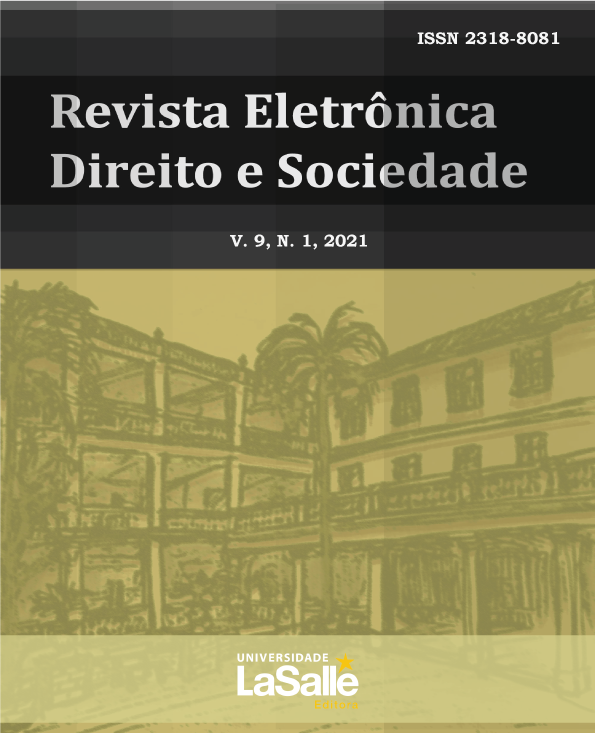The judge’s binding to the law and the search for truth in criminal proceedings: reflections on the concept of truth in criminal proceedings
DOI:
https://doi.org/10.18316/redes.v9i1.7193Keywords:
Legality, Judge, Truth, Criminal Procedure, Rule of LawAbstract
The present article analyses the rule of law principle in its practical aspect of binding a judge to the law. However strict the rules and the legal precepts may be, there’s a margin of freedom for the judge in his interpretation, a projection of his subjectivity and, with it, all the emotional burden from the feelings that the fact he/she will judge awakens. The article argues that the judge’s binding to the law does not guarantee any justice in his decisions, if the judge is not bound to the unrelenting reality of the facts to which the law must be served. From this point it analyses the problems of searching the truth within criminal procedure in a State governed by the rule of law, especially in the aspect of limitations to the power of approximate reconstruction of the facts. The conclusion, after studying jurisprudential precedents, is that criminal procedure in a State governed by the rule of law must reconcile the search for the truth (not as the absolute truth) with the dignity of the accused.
Downloads
Published
Issue
Section
License
Authors who submit their manuscripts for publication in the “REDES” Magazine agree to the following terms:
The authors claim to be aware that they retain copyright by giving “REDES” the right to publish.
The authors declare to be aware that the work submitted will be licensed under the Creative Commons Non-Commercial Attribution License which allows article sharing with acknowledgment of authorship and publication in this journal.
The authors declare to be aware that by virtue of the articles published in this journal have free public access.
The authors declare, under the penalty of the law, that the text is unpublished and original and that they are aware that plagiarism has been identified, plagiarized authors will be informed - willingly, to take legal action in the civil and criminal sphere - and, plagiarists will have their access to the magazine blocked.
The authors state that - in case of co-authoring - all contributed significantly to the research.
Authors are obliged to provide retractions and (or) corrections of errors in case of detection.
The authors are obliged not to publish the text submitted to “REDES” in another electronic journal (or not).
The Electronic Journal Law and Society - REDES - is licensed under a Creative Commons License. Attribution-NonCommercial 4.0 International.Based on work available at "http://revistas.unilasalle.edu.br/index.php/redes/about/submissions#copyrightNotice".
Permissions in addition to those granted under this license may be available at http://creativecommons.org/.

